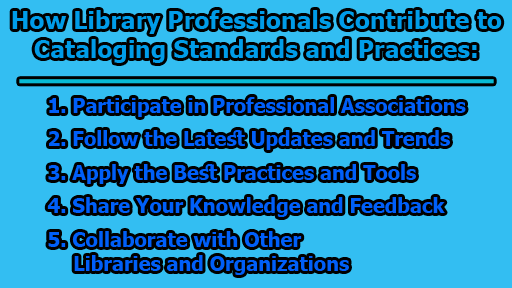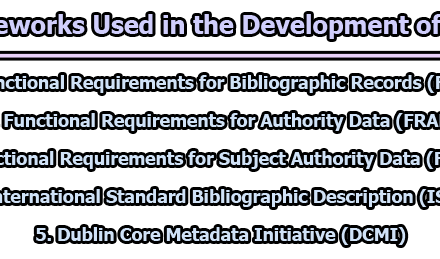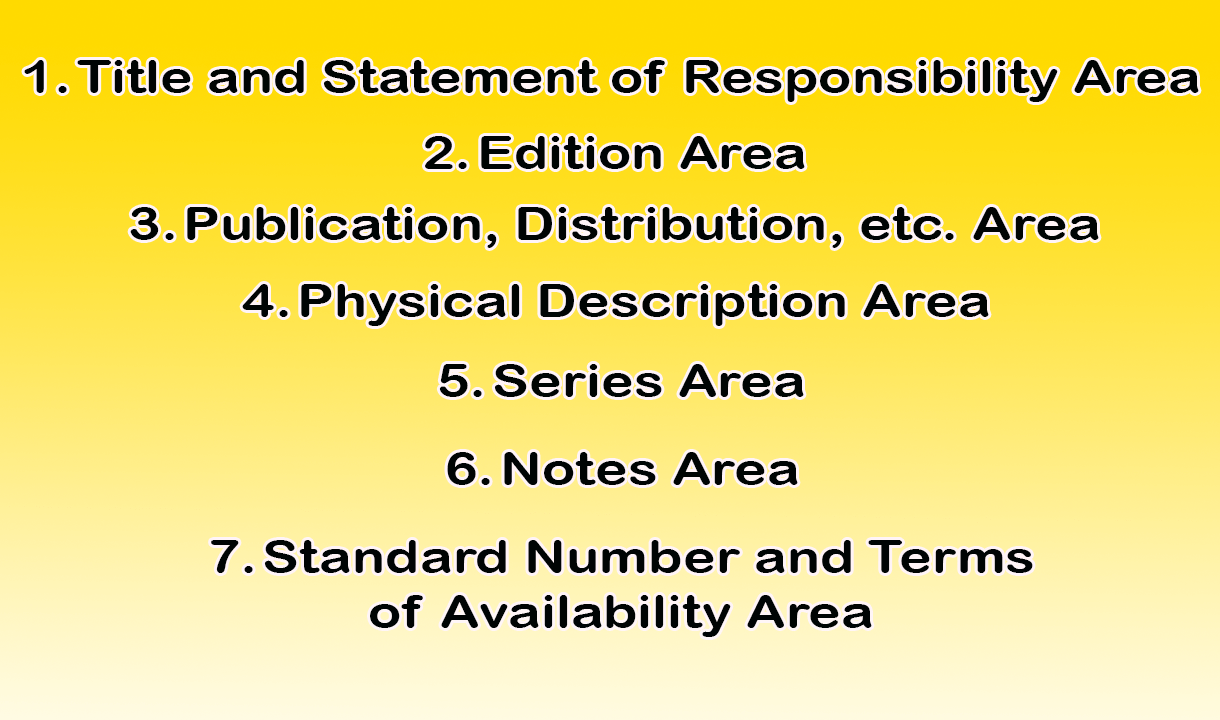How Library Professionals Contribute to Cataloging Standards and Practices:
Cataloging is a fundamental function of library services, ensuring that users can easily find, access, and utilize information resources. The guidelines and rules that underpin cataloging standards and practices play a pivotal role in maintaining consistency, accuracy, and interoperability of catalog records across different systems and formats. As a library professional, you have a significant role to play in contributing to cataloging standards and practices, which, in turn, enhances the quality and efficiency of library services. In this article, we will explore how library professionals contribute to cataloging standards and practices.
1. Participate in Professional Associations: One of the most effective ways to contribute to cataloging standards and practices is to join and actively engage in professional associations dedicated to cataloging. These associations offer valuable opportunities for networking, learning, and influencing cataloging policies and initiatives. The American Library Association (ALA), the Association for Library Collections and Technical Services (ALCTS), and the Program for Cooperative Cataloging (PCC) are examples of organizations where you can become a member. By participating in these groups, you can stay informed about the latest developments and have a say in shaping cataloging standards.
2. Follow the Latest Updates and Trends: To keep cataloging practices up-to-date and relevant, it’s crucial to stay informed about the latest developments and trends in the field. Official sources such as the Library of Congress (LC), the Online Computer Library Center (OCLC), and the International Federation of Library Associations and Institutions (IFLA) provide valuable insights and guidelines. Additionally, subscribing to newsletters, blogs, podcasts, or webinars dedicated to cataloging topics and issues will help you remain informed about emerging best practices and innovations.
3. Apply the Best Practices and Tools: Applying the best cataloging practices and utilizing the right tools is essential for maintaining the quality and efficiency of catalog records. Utilizing authoritative sources of cataloging data, including the LC Name Authority File and LC Subject Headings, ensures consistency and accuracy. Embracing standard formats like MARC 21, Resource Description and Access (RDA), and Linked Data simplifies cataloging processes and enhances interoperability. Leveraging software and applications designed for cataloging, such as OCLC Connexion, Cataloger’s Desktop, and Library of Congress Classification Online, streamlines workflows and ensures the reliability of catalog records.
4. Share Your Knowledge and Feedback: Sharing your insights and experiences with fellow catalogers and stakeholders is a valuable contribution to the improvement and innovation of cataloging. Participating in online forums, listservs, and social media groups dedicated to cataloging provides a platform for knowledge exchange and collaborative problem-solving. Presenting your research, projects, or experiences at conferences, workshops, or webinars related to cataloging is an excellent way to disseminate knowledge. Additionally, providing input, suggestions, and feedback on existing or proposed cataloging standards and practices ensures that the cataloging community continues to evolve and adapt.
5. Collaborate with Other Libraries and Organizations: Collaboration with other libraries and organizations involved in cataloging can be a powerful way to enhance the visibility and accessibility of your catalog records. Joining cooperative cataloging programs like the PCC, OCLC WorldCat, or the Digital Public Library of America (DPLA) enables you to share resources, knowledge, and expertise with a broader network of institutions. Partnering with libraries or organizations that have complementary collections and interests can lead to mutually beneficial projects. Participating in cataloging initiatives and campaigns aimed at addressing cataloging challenges or opportunities strengthens the cataloging community as a whole.
In conclusion, contributing to cataloging standards and practices is an essential role for library professionals who are dedicated to maintaining the quality and efficiency of library services. By participating in professional associations, staying updated on trends, applying best practices and tools, sharing knowledge and feedback, and collaborating with other libraries and organizations, you can make a significant impact on cataloging and contribute to the ongoing development of this vital library function. Your efforts will ensure that library users can easily access the information they need and that catalog records remain accurate and reliable in an ever-evolving information landscape.

Library Lecturer at Nurul Amin Degree College










